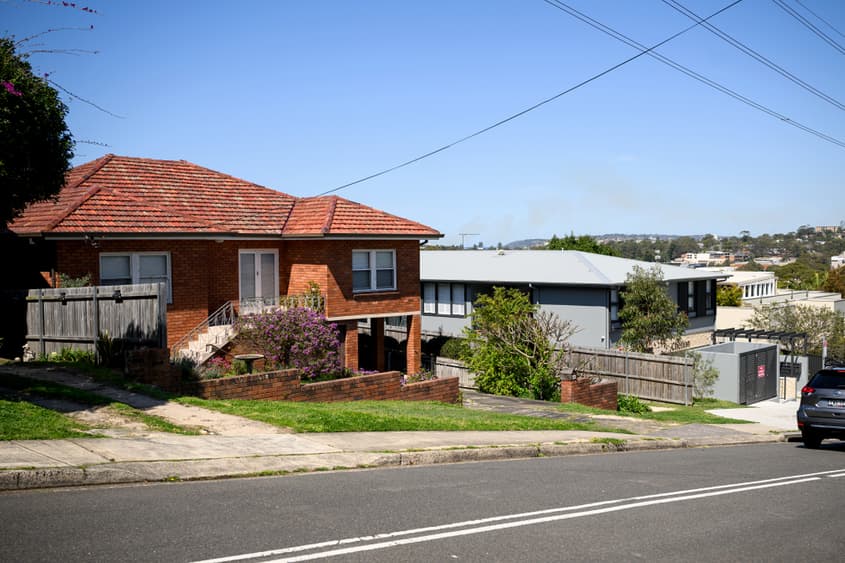There are a number of factors effecting house prices. But, what is for certain is housing is becoming less affordable, strange given the last election was largely fought on policies that promised to make it more affordable.
Fri 7 Nov 2025 00.00

Photo: AAP Image/Bianca De Marchi
House prices are starting to pick up with prices running well ahead of wages over the last year.
Unfortunately, this means housing is becoming less affordable, strange given the last election was largely fought on policies that promised to make it more affordable.
There are a number of things going on. Interest rates have been cut 3 times this year. Falling interest rates usually spur house price growth because they mean everyone can borrow more. When everyone shows up to the auction having been approved for larger loans, the price goes up.
We have also seen a rapid increase in investor mortgages. They are now increasing faster than mortgages for owner-occupiers and are growing faster than at anytime since the end of 2015. For those with long memories, this was a time when APRA, Australia’s financial regulator, cracked down on the banks because they were worried about risky lending.
Growth in owner-occupier mortgages, by comparison, have remained flat and continue to increase at below their long-term average.
But another important factor is that this is the beginning of big changes to the government’s first home buyer guarantee. This is where first home buyers can buy a house with just a 5% deposit. Normally banks require a 20% deposit, or the borrower must purchase mortgage insurance.
At the beginning of October, the scheme became uncapped, non-means-tested, and maximum eligible house prices were increased. All this means many more people became eligible to use it.
This week we got data on how many people took advantage of the scheme for the month of October. It turns out it was 1 in 10 homes sold. About half of these purchases would have been ineligible before the changes.
That’s a big uptake.
It’s probably fair to say it would have had some impact on prices. How much? That is difficult to say. But having thousands of new buyers able to now get into the market would have some impact.
The Housing Minister, Clare O’Neil, claims that the impact on prices of the first home buyer guarantee would be dwarfed by other impacts like a lack of housing supply, the fall in interest rates, and rising wages.
She doesn’t provide any evidence for this, but let’s have a look at each of them.
The lack of supply is a common claim. But over the last 10 years the population has increased by 16%. So, for supply to have kept up, Australian would need to see dwellings increase by at least 16%. They actually increased by 19%. Dwellings are growing faster than the population.
As noted above, interest rates have almost certainly had some impact on prices. But investors are rushing into the market much faster than owner-occupiers. This is also not surprising since investors are attracted to rising prices.
So many investors are negatively geared. This means they are losing money renting out the properties. The only way they make money is on the capital gain, which requires house prices to increase. Higher house prices attract more investors.
Finally, wages are increasing but more slowly than house prices. Over the last year according to the wage price index, wages have increased 3.4%, while house prices have increased 6.1%.
It is likely that the changes to the first home buyer guarantee have helped push up prices and it is not just because 1 in 10 home purchases took advantage of the scheme. It has probably pushed up prices even in sales where the winner wasn’t someone using the scheme.
Those 1 in 10 home sales are just those that were successful at the auction. Many will have bid up the price but ultimately missed out. This still has an impact on the price if the second last bidder was someone encouraged to bid by the scheme.
Some might say that it doesn’t matter if scheme pushes up prices. It is all worth it if it gets more first home buyers into their own home.
But this ignores two important impacts.
The higher house prices will make it harder to future first home buyers to get into the market.
The higher prices will encourage more investors to get into housing. The increasing prices will act as a lure for investors, pushing prices even higher.
This is going to continue to be the case until the government cracks down on the capital gains tax discount and negative gearing. Until then policies like the first home buyers guarantee are just band aids that are likely to make things worse in the long run.